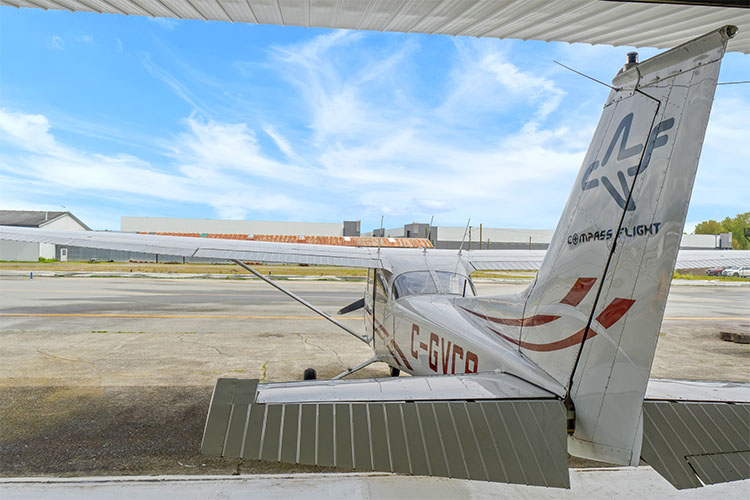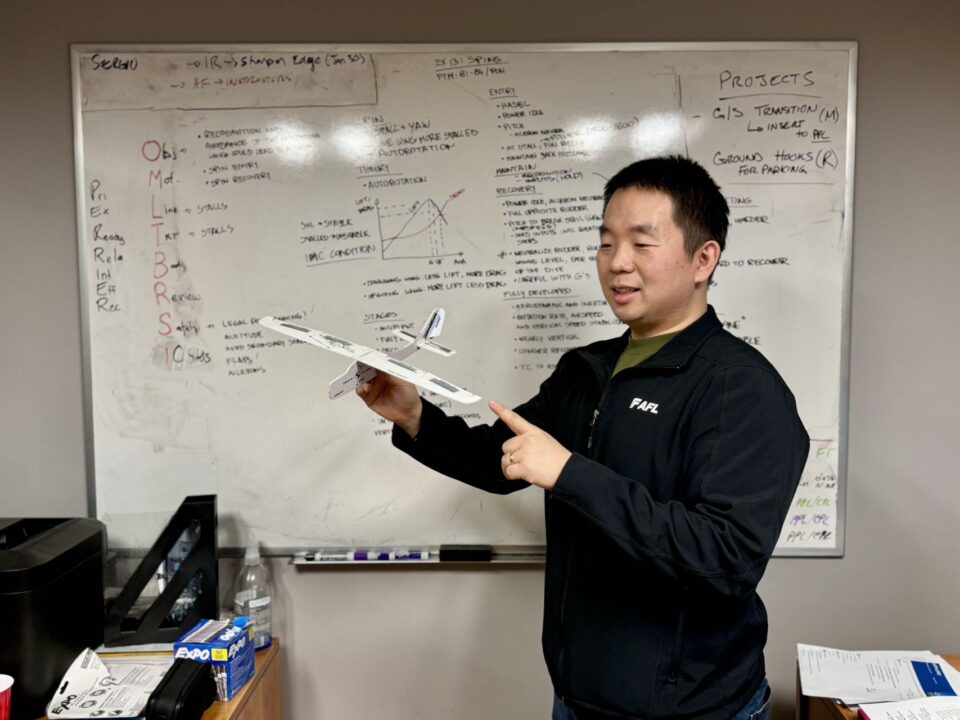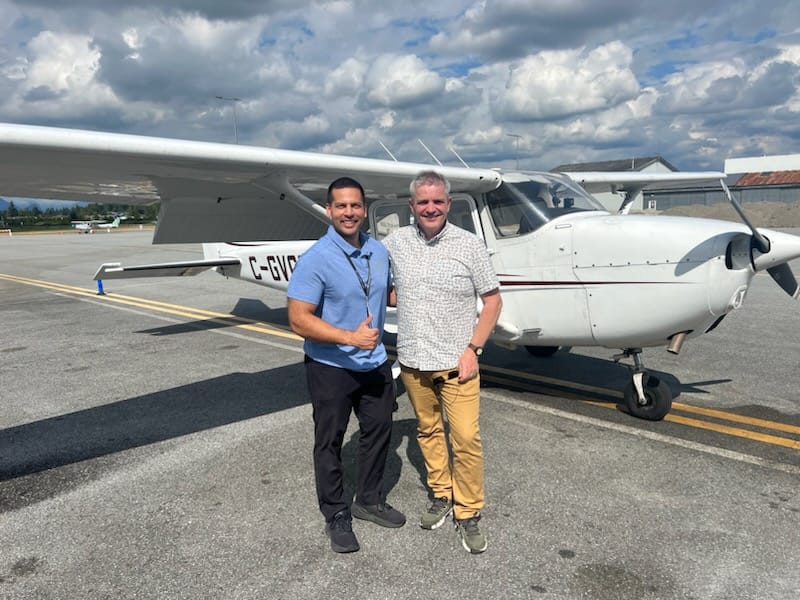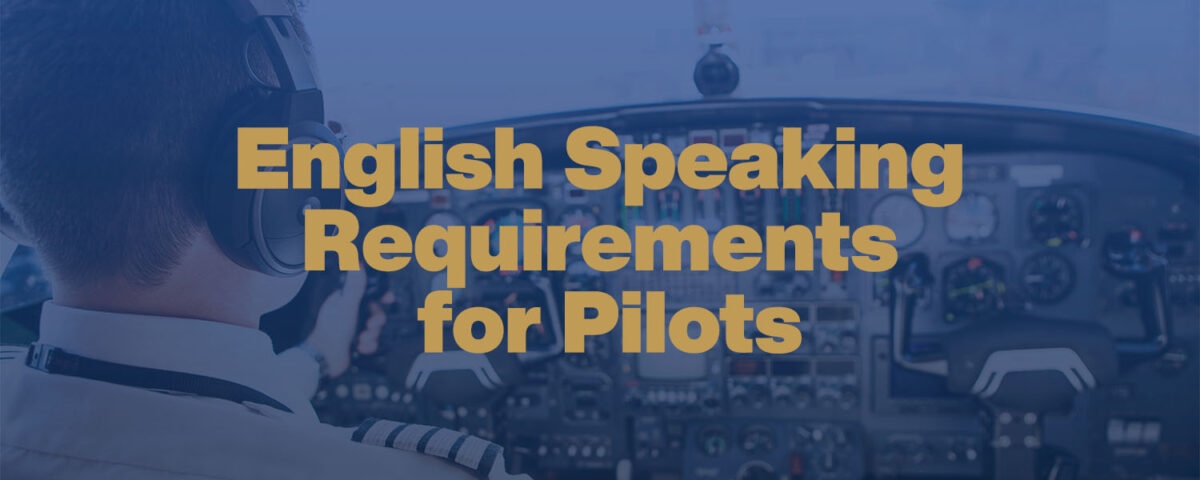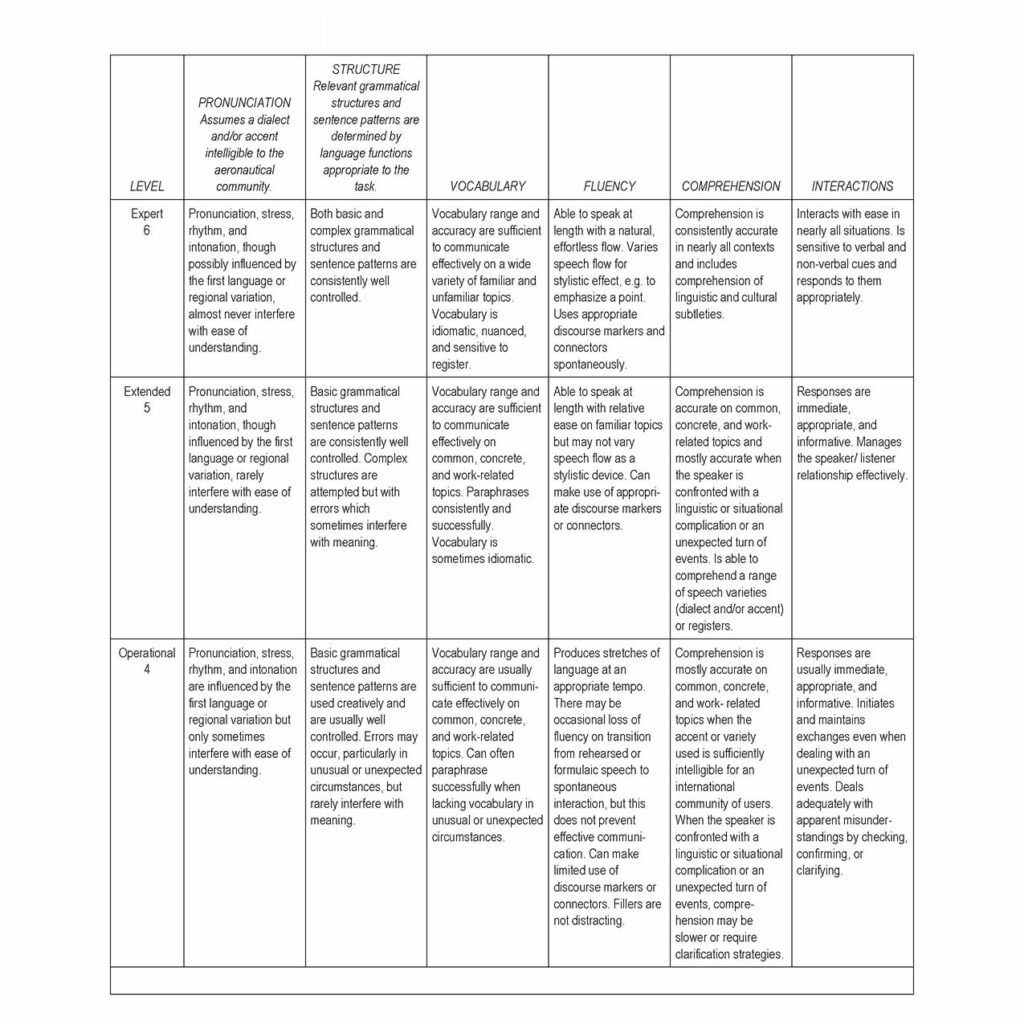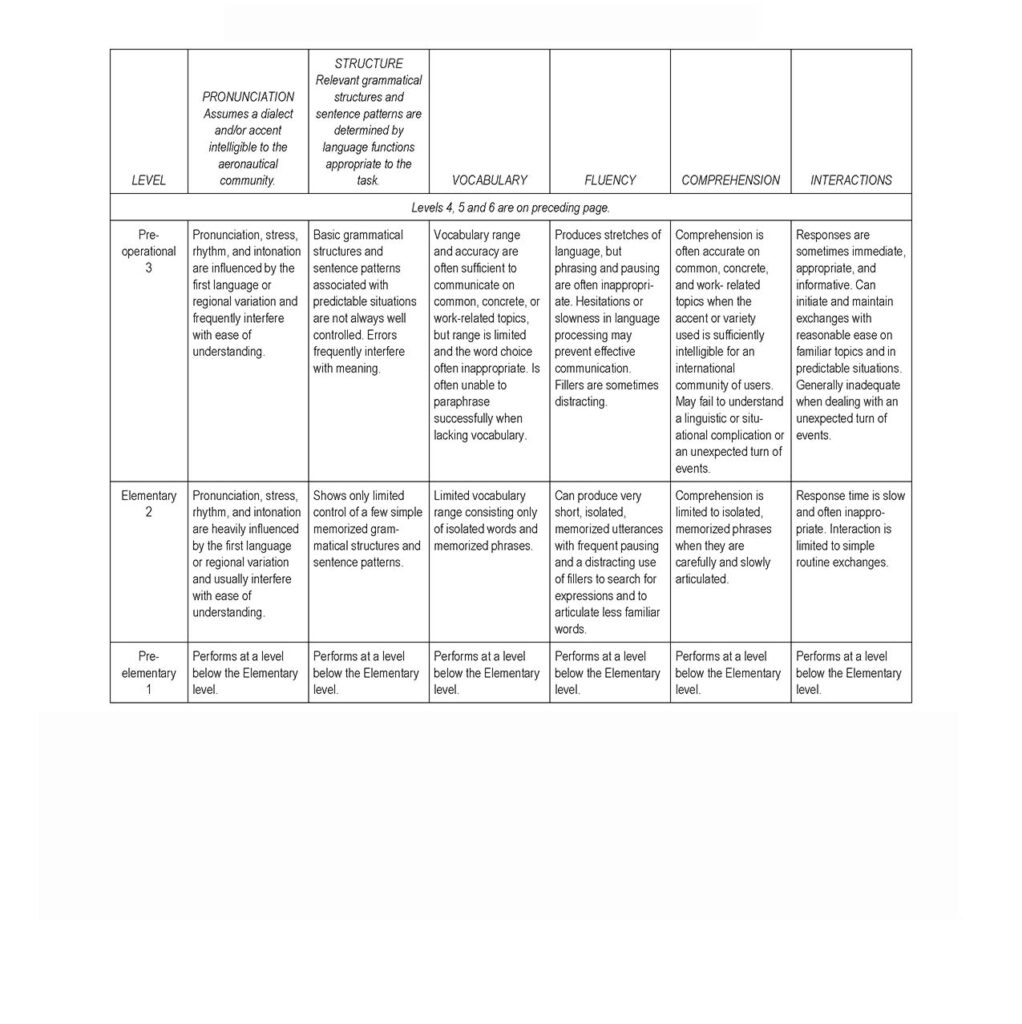
Flight Training in Vancouver
3 January 2023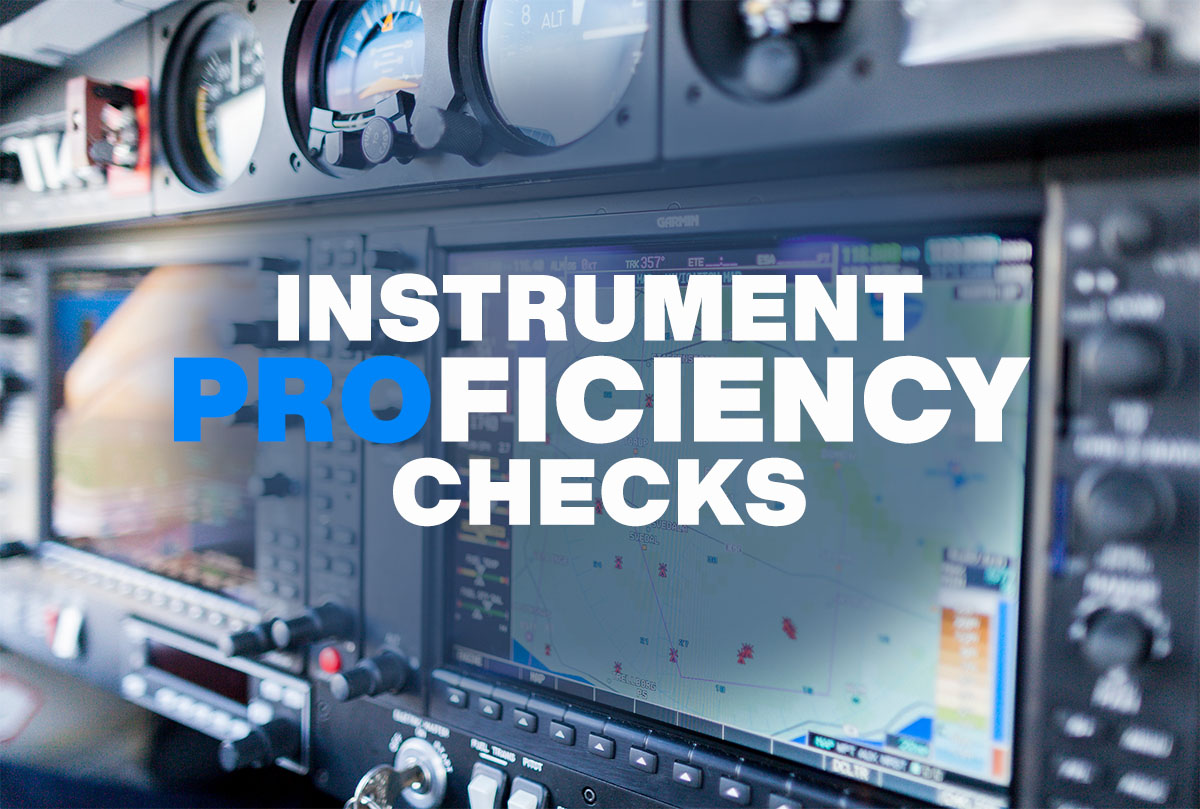
Instrument Rating Currency Requirements
24 January 2023Speaking English and Becoming a Pilot
If you are thinking about becoming a pilot you might be interested in pilot English requirements. You will need to be able to communicate in English if you wish to be a pilot. This article will discuss the level requirements, how English language testing works for pilots in Canada, sample language you need to know, and why communication is important.
English Level Requirements for Pilots
The International Civil Aviation Organization (ICAO) has developed standards for pilots all over the world. These standards address 6 areas of language:
The ICAO Proficiency Rating Scale Areas of Proficiency
- Pronunciation
- Structure (Grammar)
- Vocabulary
- Fluency
- Comprehension
- Interactions
Explanation
I think most of these areas are self explanatory except for ‘interactions’. Interactions refers to your ability to respond immediately, appropriately, and informatively

Pronunciation
It is possible for your native language to be English and fail an English language test. ICAO standards assume your dialect and/or accent is intelligible to the aeronautical community. This means you need to speak a ‘flavor’ of English that ‘most’ people will understand. Most people in the aeronautical community will understand Canadian, American, Australian, New Zealand, South African, and British ‘flavors’ of English. If you speak a ‘flavor’ of English from outside these regions you may have problems passing the pronunciation portion of a language proficiency test.
English Levels Required for Pilots to Pass
The ICAO scale rates speakers from one to six (1-6). You only need to be familiar with levels three to six (3-6).
- Expert - Level 6
- Extended - Level 5
- Operational - Level 4
- Pre-operational - Level 3
- Elementary - Level 2
- Pre-elementary - Level 1
If you are to be considered ‘expert’ you would need to score a level 6 in all six of the rating areas. Scoring lower in any area would bring your overall rating down to that score. For example, if you scored 6 in all areas except pronunciation where you scored a 3 you would be considered a level 3. Scoring a 6 in all areas would mean you are considered ‘expert’ and would never need to take a pilot language proficiency test again.
To pass a pilot language test and be considered safe to fly you will need to be awarded level 4 or above in all testing areas. This would allow you to fly, however you would need to demonstrate your ability to speak English again in 4 years.
All Pilots Need to Take a Language Test
Born in Canada or in Asia, the pilot English requirements are the same and everyone still needs to take a language test. However, the difference is an informal test versus a formal test. Canadian citizens who have graduated from a Canadian English high school can take an informal language demonstration provided the flight instructor is satisfied that the candidate meets the expert level 6. If you are not a Canadian citizen and have not graduated from a Canadian high school you can still qualify for an informal test if the flight instructor is satisfied that you meet the expert level 6 requirements.
What to Study for Pilot English Tests
There is no shortcut to studying for a language demonstration. There is no shortcut to learning a language. You need to immerse yourself in the language you are trying to learn every day. Some of the areas of English with which you need to understand and be fluent are listed below. This is by no means an exhaustive list. It is only the tip of the iceberg !
Grammar
- Prepositions after adjectives
- Relative clauses
- Conditionals
- Reported speech
- Past perfect
Parts of Speech
- Adverbs of degree
- Compound nouns
- Phrasal verbs
- Compound & uncountable nouns
- Reflexive pronouns
Functional Language
- Describing places
- Complaining and Apologizing
- Giving Opinions
- Making Decisions
- Making Requests
Sample Questions
You will be asked a series of questions; some aviation related and some that are non-aviation related. Some aviation related questions will aim to score your ability to speak in ICAO standard phraseology. Example questions might be:
Aviation Related Standard Phraseology
Non-Aviation Related Plain Language
Aviation Related Plain Language
Clear communication is a very important safety concern.
On March 17, 2017 two training airplanes collided in St. Bruno, Quebec. Both pilots were students and both spoke English as a second language. The Transportation Safety Board stated that “language proficiency among the student pilots of the four local flying schools add to [the] complexity”. While the students met the pilot English requirements and were cleared as ‘operational’ by their flight schools they still appeared to have had problems communicating with ATC. Attaining an ‘operational’ level (level 4) of English should not be the goal for pilots who are non-native speakers of English. Pilots should always be striving to exceed the baseline for the safety of themselves, their passengers, and other pilots in the sky.

